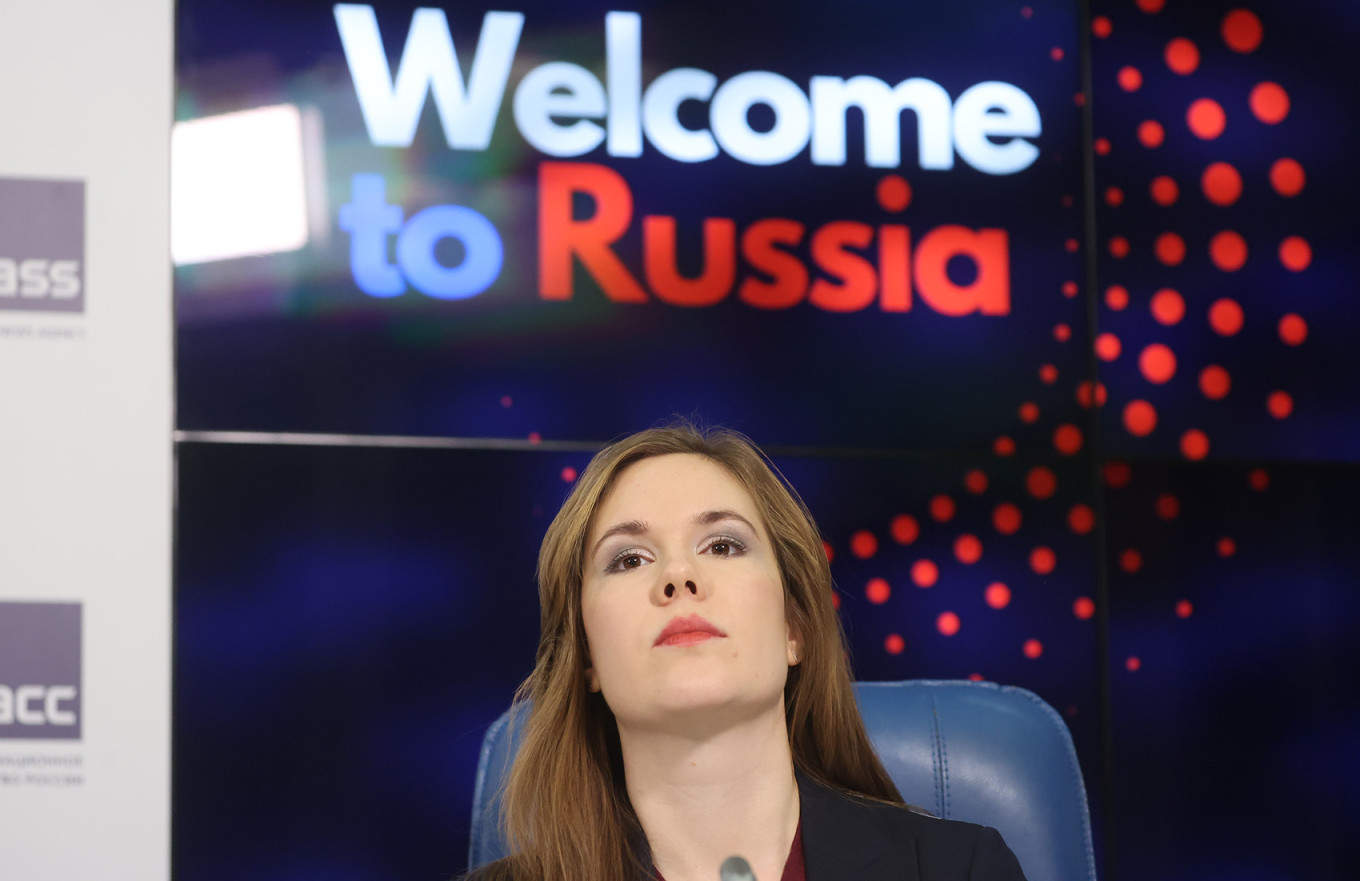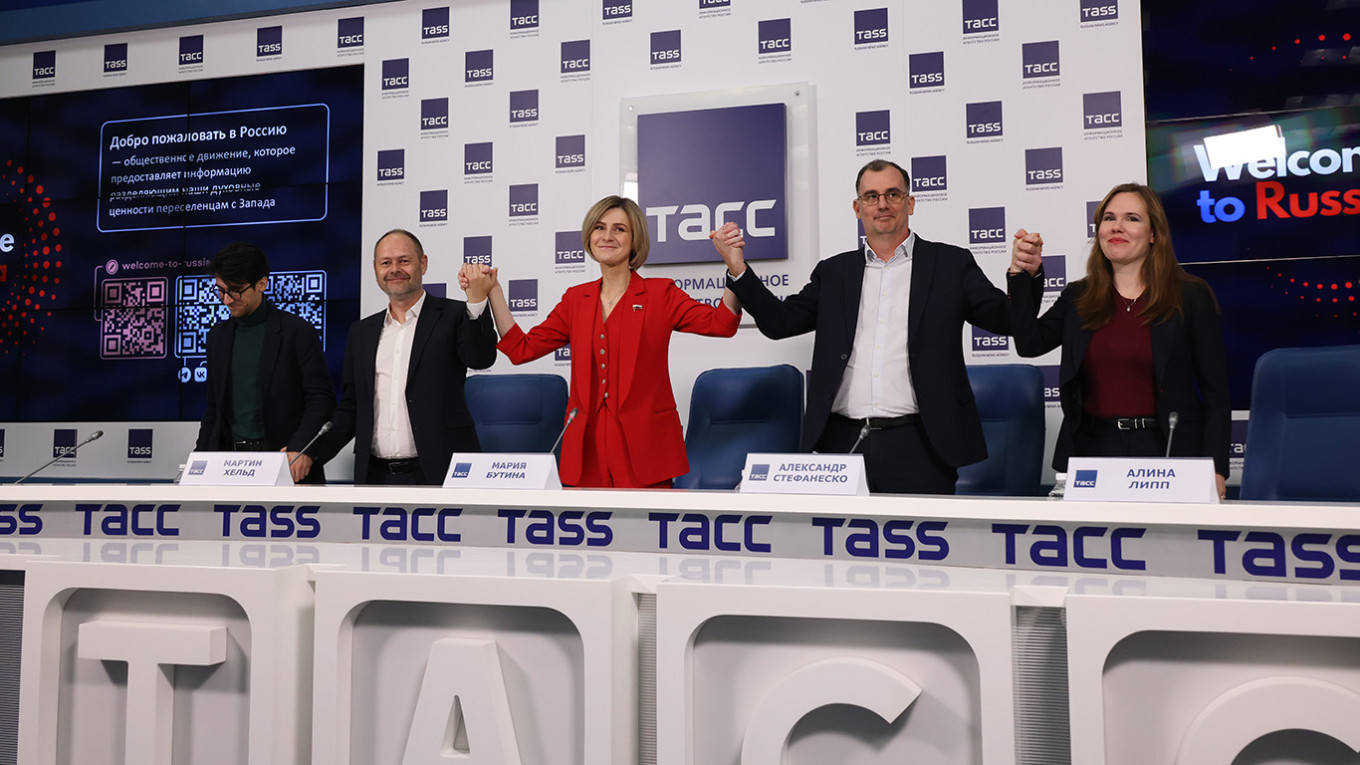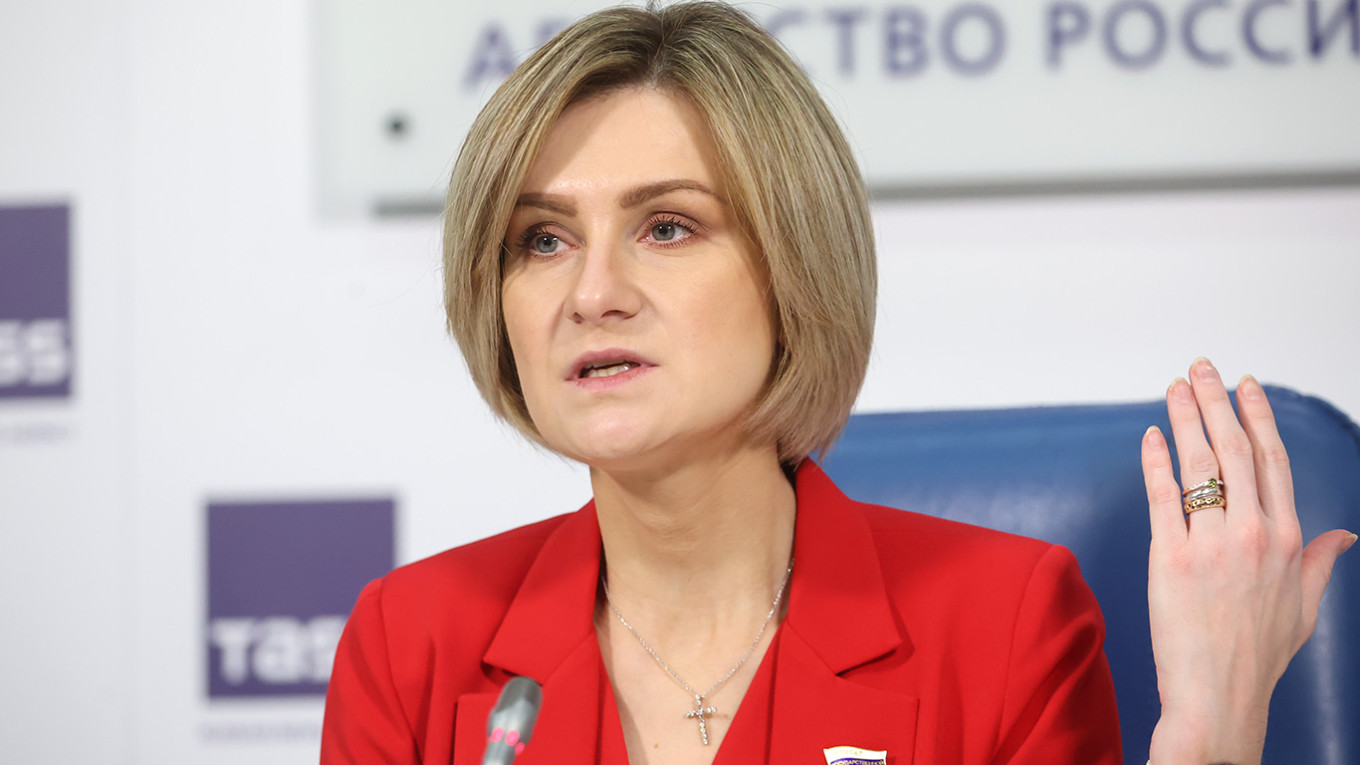Maria Butina was once imprisoned in the United States for acting as an unregistered foreign agent by infiltrating conservative circles during the 2016 U.S. presidential election.
Now a lawmaker in Russia’s lower-house State Duma, she is rebranding herself as a guide and mentor for Westerners who, the Kremlin claims, are seeking to move to Russia in search of a haven for their conservative beliefs.
Welcome to Russia, a new NGO led by Butina, will oversee the immigration process for the “thousands” of Westerners seeking a more “traditional” way of life in Russia, she told The Moscow Times.
“The group will provide three types of services. For those who want to relocate, it will offer the necessary information according to the decree of 'spiritual' asylum,” Butina said ahead of a press conference in Moscow on Friday with a group of Russian lawmakers and Western migrants now living in the country.
“It will provide tours for those who are looking to move to Russia in the future who want to see how the country is to live [in], and finally, we also want to create a community [of those that have moved to Russia],” she said.
In April, President Vladimir Putin signed a decree that simplified the Russian residency process for Western nationals who share what the Kremlin calls “traditional Russian spiritual and moral values.”
“This means people who don't support LGBT movements, people who believe their kids should be raised in a traditional way,” Butina said in a phone interview about Putin’s decree. “This is the decree that helps families to preserve the idea of a mother and a father, something that they are not given in the West. Conservatives are welcome in Russia, that is the point.”

Since the beginning of the full-scale invasion of Ukraine nearly three years ago, the Kremlin has ramped up its efforts to embrace — and enforce — conservative values, positioning itself as a counterweight to the so-called “destructive neoliberal agenda” of its Western adversaries.
Last November, the Supreme Court designated the vaguely defined “international LGBT movement” as an “extremist” organization, putting any individual or group who publicly identifies with LGBTQ+ symbols or lifestyles at risk of criminal prosecution.
“Do we really want, here, in our country, in Russia, instead of ‘mom’ and ‘dad,’ to have ‘parent No. 1,’ 'parent No. 2,' 'No. 3'?” Putin said at a September 2022 address to mark Moscow’s annexation of four illegally occupied Ukrainian regions.
These efforts to present Russia as a bastion of conservative values have resonated with the president's support base, said Sam Greene, the director of the Russia Institute at King’s College London.
“It's not a secret the Kremlin has been trying to build constituencies among predominantly right-wing and hard-right communities. It is true that wedge issues that Putin has used, like religion and LGBT issues, have been relatively successful at marginalizing the opposition and galvanizing opinion among a core pro-Putin electorate,” Greene added.
According to statistics from Butina's office, 4,676 Westerners have sought temporary asylum in Russia since the beginning of 2022, with 2,358 people applying for a temporary residence permit in 2023. Over 200 of them signed up and moved to Russia since April's decree, Butina said.
The bulk come from Germany and the Baltic states, with 1,237 and 1,802 nationals immigrating from these places respectively, while 227 are U.S. citizens and 108 are British nationals, according to Butina's statistics.
“Every day we have more than 15 people applying and asking questions, and I do know that once we set up an initiative, there will be even more,” Butina added.
The Moscow Times could not independently verify these statistics.
As a member of Russia's ruling United Russia party who spent 15 months in a U.S. jail, Butina says she is uniquely qualified to assist non-Russian-speaking foreigners with moving to her home country.
Butina was convicted for her work to infiltrate conservative groups like the National Rifle Association as part of an effort to promote Russian interests in the 2016 U.S. presidential election.
The Senate Intelligence Committee concluded that she sought to persuade Donald Trump's campaign to establish a secret communications back channel with Russia. Butina has denied being a spy.
On social media, the lawmaker posts regular videos showing off everything from housing to grocery stores in provincial Russia — as well as advertisements for fully funded relocation opportunities for Western families with many children.

Friday's press conference took place in a mixture of Russian and English, with Welcome to Russia’s five foreign representatives hailing from Europe and Australia and ranging from businesspeople to bloggers.
"I moved here with my family in 2019. In Australia, they introduced laws associated with the LGBT movement, and we realized where we wanted to raise our future children. So I moved here not just for myself, but for my children," said Australian blogger Sabrina Hair, a self-described “homestead girl” who spoke via video link from her home in southern Siberia’s Аltai region. She did not specify which laws she was referring to.
Also on the panel was German national Alina Lipp, a self-styled war blogger who has spent much of the past two years in Ukraine's Donbas region, where she claims to offer the “truth” to her thousands of Telegram subscribers.
German prosecutors have accused Lipp of spreading Russian propaganda and attempting to undermine German democracy.
Butina denies that Welcome to Russia is just another example of this propaganda, as Moscow attempts to display its handful of Westerners to the rest of the world.
“We are providing a secure and safe place for foreigners. We don't offer money, people by themselves are coming here to look for opportunities. If we wanted to just bring people here, we would offer them money, but we don't do that,” Butina said.
But Greene, whose research focuses on power and authoritarianism in modern-day Russia, refutes this.
"I don't think the Kremlin is actually interested in having lots of Westerners come and live in Russia so much as it is interested in looking for opportunities for PR victories," he said.
Any efforts to market Russia as a welcoming place are fundamentally at odds with the mass exodus of both nationals and foreigners since 2022.
Though Moscow does not release official statistics, news outlet The Bell estimated around 650,000 people have permanently moved abroad since the start of the war, many of whom cited fears of war, mobilization and political repression.
Foreigners have not been immune to Russia's wartime repressions, with reports of lengthy interrogations at the border for citizens of countries the Kremlin deems “unfriendly.”
U.S. journalists Evan Gershkovich and Alsu Kurmasheva served extensive time behind bars on trumped-up charges before they were freed in a major prisoner swap with the West in August. Russian-American citizen Ksenia Karelina is serving a 12-year prison sentence on treason charges for donating $51.80 to a Ukraine aid charity.
Despite these cases, Butina insists that those looking to make the move have nothing to worry about.
“The fact that the Russian government is in this boat … is a clear message to Westerners who want to move here,” she said. “As head of the movement, I will vouch for them. If you come here legally, you don't break any laws, then you're going to be fine, I can guarantee that.”
A Message from The Moscow Times:
Dear readers,
We are facing unprecedented challenges. Russia's Prosecutor General's Office has designated The Moscow Times as an "undesirable" organization, criminalizing our work and putting our staff at risk of prosecution. This follows our earlier unjust labeling as a "foreign agent."
These actions are direct attempts to silence independent journalism in Russia. The authorities claim our work "discredits the decisions of the Russian leadership." We see things differently: we strive to provide accurate, unbiased reporting on Russia.
We, the journalists of The Moscow Times, refuse to be silenced. But to continue our work, we need your help.
Your support, no matter how small, makes a world of difference. If you can, please support us monthly starting from just $2. It's quick to set up, and every contribution makes a significant impact.
By supporting The Moscow Times, you're defending open, independent journalism in the face of repression. Thank you for standing with us.
Remind me later.







